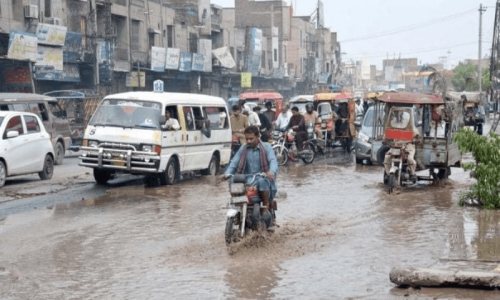PESHAWAR: The displaced people from North Waziristan Agency, living in Bannu, find it hard to feed their cattle and protect them from diseases.
A ‘Multi-clustered initial rapid assessment report’, compiled by UN and other donor organisations in Bannu district, which hosts 80 per cent of the 520,580 displaced persons, shows that the tribesmen, who left behind 25 per cent of their livestock in North Waziristan when a military operation was launched there, are facing the daunting task to provide fodder, water and vaccination to their domestic animals.
According to the report, more than 50 per cent of an estimated eight million population of the seven tribal agencies and six frontier regions depend on agro-based activities for living , 18 per cent are engaged in trade and business, 12 per cent have regular jobs and 12 per cent earn their livelihood through daily wages.
The means of their livelihood have been disrupted as a result of displacement because they do not have stable sources of livelihood in the areas where they are currently living. Each household in the Federally Administered Tribal Areas including North Waziristan Agency has 7.36 animals averagely, which means the 520,580 displaced families owned 395,640 animals in their ancestral areas.
Most of the domestic animals of displaced persons remain unvaccinated
In the new situation, the displaced persons, who brought almost 75 per cent of their livestock with them during displacement, also lacked proper shelters, the report said.
It also indicated that a severe shortage of fodder and water exposed the domestic animals of displaced people to diseases. The farmers were quoted in the report that they had lost 70 per cent of the fodder stock.
The report said that 74 per cent of the communities reported inadequate availability of fodder for their livestock while 17 per cent had no fodder for survival of their animals. Lack of shelter for animals was also cited as a factor posing threats to the livestock. Sixty-one per cent IDPs reported severe shortage of water for their animals, it said.
As a result of the disruption of livelihoods, the lack of earning opportunities, and unavailability of the desired inputs, the displaced families were compelled to sell their livestock, despite being a highly valuable productive asset, it said.
The findings of the report also indicated that displaced people sold 18 per cent of the livestock following their displacement at far lower than average market prices. It said that about 46 per cent reduction was reported in the prices of domestic animals.
In addition, the likelihood of livestock diseases has increased in the areas, as most of the cattle stay unvaccinated.
The report said that occurrence of animal diseases, including external and internal parasites and black quarter, were reported in many in cattle in the areas where displaced farmers were living.
The report, compiled by relief agencies in collaboration with the local authorities in Bannu is meant to assess the situation and pinpoint urgent needs of the displaced population, said that large number of livestock should be protected.
Published in Dawn, August 18th, 2014










































